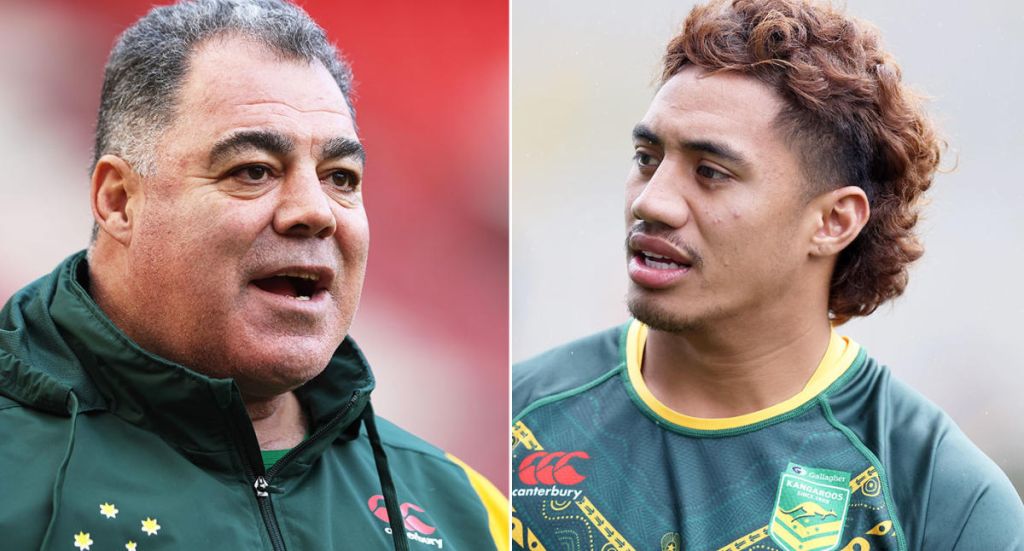
LeagueNews.co | Jason Patrick
Australian rugby league coach Mal Meninga has criticized the eligibility rules in international rugby league, following former Kangaroos star Murray Taulagi's decision to switch his allegiance to Samoa.
Taulagi, who was part of Meninga's Kangaroos squad that won the 2022 Rugby League World Cup, was overlooked for Australia's Pacific Championship squad.
Despite his impressive performances for the Maroons in this year's State of Origin series, Taulagi was not selected for the Kangaroos squad, with Josh Addo-Carr being chosen instead.
However, Addo-Carr was subsequently stood down from the squad due to a two-match ban for his involvement in a brawl.
Speaking about Taulagi's decision to join Samoa, Meninga expressed his disagreement with players being able to switch allegiances after representing another country at the senior level.
He believes that players should not have the option to switch between countries once they have made their senior debut.
Currently, eligibility rules allow players to switch between tier-one nations such as Australia, England, and New Zealand, and tier-two nations like Tonga, Samoa, France, and Papua New Guinea.
Meninga stated, "I don't believe guys should be able to go back and forth (between countries).
What I would like to see is that every player nominates which country they want to play for right from their first registration in the NRL." His comments highlight his desire for players to commit to a particular country from the beginning of their professional career.
Meninga's stance reflects the ongoing debate surrounding eligibility rules in international rugby league.
While some argue for stricter regulations to maintain the integrity of representing a national team, others believe that players should have the freedom to choose which country they want to represent, especially if they have ancestral ties or personal connections.
The issue of eligibility rules will continue to be a topic of discussion in rugby league, as players like Taulagi make decisions regarding their international careers.
Ultimately, the sport's governing bodies will need to find a balance between preserving the integrity of national teams and allowing players the freedom to choose their international allegiances.
